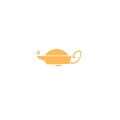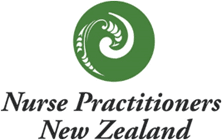Stephanie Dowden RN, Paed Cert, MEd, MN(NP), MACNP
After completing nursing studies in Dunedin, Stephanie started on her 25+ years in children’s healthcare, including primary health, community development and tertiary hospital settings, in NZ, Australia and the UK. Stephanie worked at Royal Children’s Hospital in Melbourne for many years before moving to Western Australia 12 years ago. She worked at Princess Margaret Hospital in Perth for 8 years before moving to Curtin University to coordinate the Nurse Practitioner program. Since July 2017, Stephanie has been working in independent practice as a Nurse Practitioner. Her business, NursePrac Australia, has a clinic in southern Perth with a key focus on common chronic childhood conditions and healthy weight and lifestyle for adults and children. In 2018, Stephanie set up several pilot projects aimed at improving health outcomes for disadvantaged populations. In her free time, Stephanie provides leave relief as a paediatric nurse practitioner in the Kimberley region (far north WA). She is the chair of the WA Chapter of the Australian College of Nurse Practitioners and is passionate about promoting understanding of advanced nursing practice and exploring novel models of healthcare delivery.
ABSTRACT
Title: Are the ACEs high?
Adverse childhood experiences (ACEs) are circumstances such as neglect, abuse and adversity that can lead to negative impacts for a child’s whole life. The greater the number of ACEs, the worse the impact on health, well-being and social outcomes. Children growing up in disadvantaged areas, in poverty, and those of a lower socioeconomic status are more likely to be exposed to ACEs compared to more advantaged peers.
Although there is an increasing understanding that our lifestyle and behaviours influence our health, there is less awareness about social determinants. Additionally, while we are realising the importance of trauma-informed care, we do not often explore the causes of this.
Primary care paediatric practitioners are uniquely positioned to screen for exposure to adversity in their child and adolescent patients. Asking adults about their and their children’s ACE score can enable health providers to look what is underlying illness and disease, to help our patients to get support to address adversity and prevent further harm, to reduce the negative impact of ACEs and to improve long-term health outcomes.
This session will discuss how one nurse practitioner-led service has embedded ACE screening in their care delivery; the impact of this practice and the benefits and implications for children, teens, adults and their families.
References:
Burke Harris, N., & Renschler, T. (2015). Center for Youth Wellness ACE-Questionnaire (CYW ACE-Q Child, Teen, Teen SR) (7th ed.). San Francisco, CA: Center for Youth Wellness.
Commission on the Social Determinants of Health. Closing the gap in a generation: health equity through action on the social determinants of health. Final report of the Commission on Social Determinants of Health. Geneva: World Health Organisation, 2008.
Felitti, V.J. et al. (1998). Relationship of Childhood Abuse and Household Dysfunction to Many of the Leading Causes of Death in Adults - The Adverse Childhood Experiences (ACE) Study. Am J Prev Med 1998;14: 245–258.
Kalmakis, K.A. et al. (2017) Nurse practitioner screening for childhood adversity among adult primary care patients: A mixed-method study. J Am Assoc NP29: 35-45.
UCL Institute of Health Equity. The impact of adverse experiences in the home on the health of children and young people, and inequalities in prevalence and effects. Public Health England, 2015.
 Menu
Menu
